As strongmen rule, what path will China choose?
Amid global uncertainty, US President Trump and Chinese President Xi, each grappling with domestic and foreign policy challenges, operate in a world governed by human nature rather than civilised ideals. As the balance of power shifts towards China, a crucial question emerges: what path will Beijing choose on the world stage? From the law of the jungle in international relations to the arrogance of paramount leaders, the future remains uncertain. EAI senior research fellow Lance Gore gives his take.
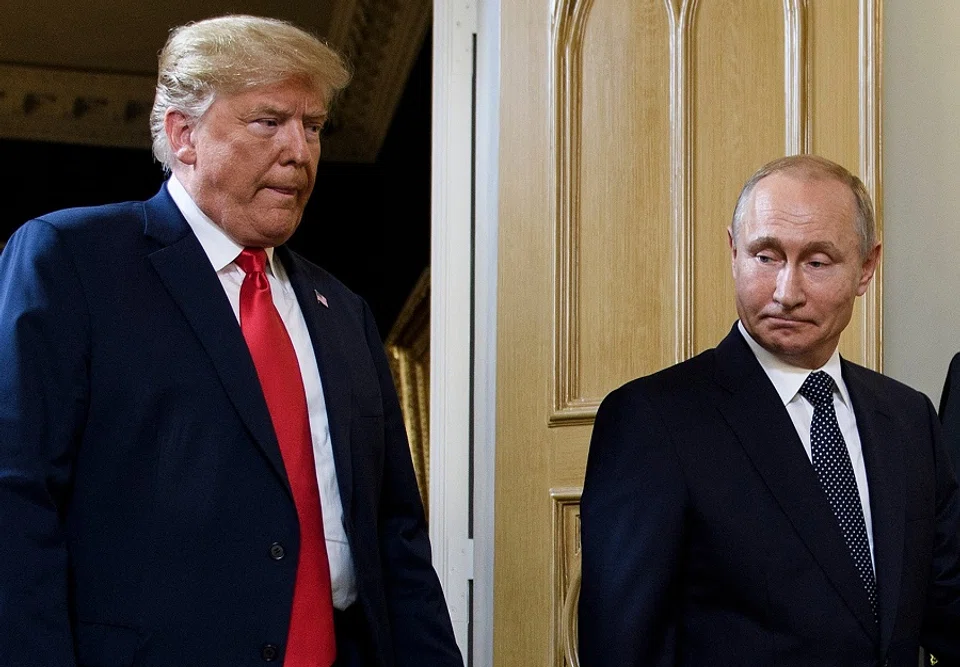
What China calls “great changes unseen in a century” begins with the change in America’s self-perceived international role. After World War II, the liberal international order established by the US was continually challenged by the Soviet bloc during the Cold War; it was not until the dissolution of the Soviet Union and the end of the Cold War that the US achieved global dominance. But right from the start, the liberal international order was led exclusively by the US, which shouldered almost all the costs.
Compared to other empires in history, America’s is a new form of empire — arguably the most enlightened — especially during the Cold War, when America’s tolerance and generosity toward its allies helped create the “East Asian Miracle” and the revival of Europe.
After the Cold War, leveraging the momentum of its victory, even America’s former enemy, China, was able to take advantage of it, gaining space and resources for rapid development.
Crumbling old order
Now, the US believes it has been taken advantage of within this order and is no longer willing to bear the systemic costs. It also intends to use the remnants of its imperial power to extract benefits, much like old imperial powers. In this process, the Democratic Party still hopes to maintain the moral high ground to preserve the alliance system to compensate for its declining national power. The Republican Party under Trump, however, believes that its allies are even more detestable, fleecing the US more than enemy nations. The civilisation underpinning of the world order is now crumbling.
Empires have been the most common political organisation in human history, and their foundation lies in human nature — domination of the weak, self-aggrandisement, and a pursuit of self-interest. Over the 80 years since the establishment of the liberal international order, there has been a long list of theorists advocating for the obsolescence of war and the progress of civilisation.
In 1986, Richard Rosecrance published The Rise of the Trading State, describing a new era where international trade replaced conquest. Harvard’s Steven Pinker, in his 2011 book The Better Angels of Our Nature, systematically elaborated on the causes and manifestations of civilisational progress. Israeli historian Yuval Noah Harari, in Sapiens: A Brief History of Humankind (2014), confidently proclaimed that war was outdated. Of course, the role the US played in the post-WWII dissolution of Europe’s colonial empires, as well as President Jimmy Carter’s 1977 treaty transferring control of the Panama Canal to Panama, are indeed seen as signs of human progress.
... many world leaders continue to operate under a mindset rooted in human nature. For example, Russia’s Vladimir Putin remains obsessed with Tsarist Russia, and his invasion of Ukraine follows a Tsarist blueprint.
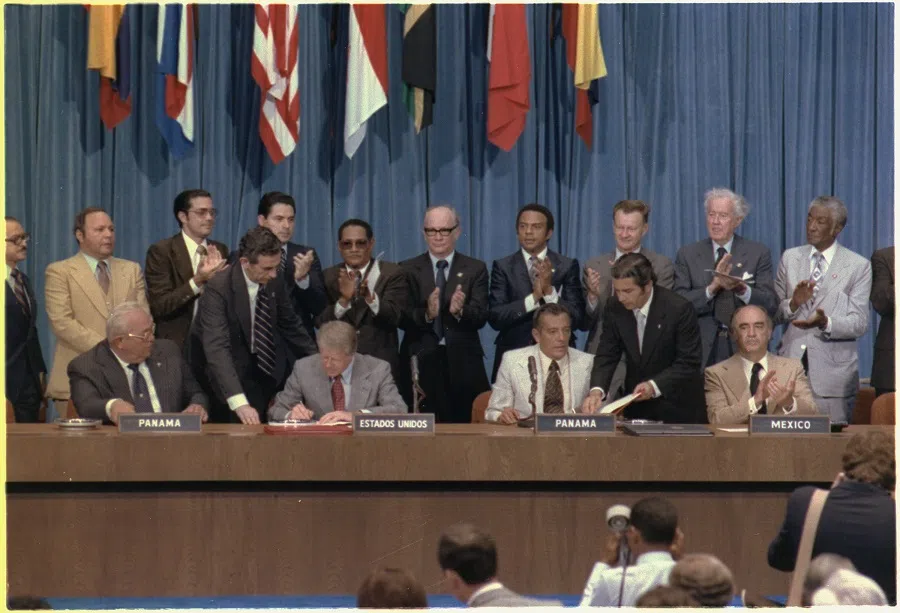
However, there have been “discordant noises” in this progress, including President Ronald Reagan’s 1983 military intervention in Grenada to overthrow a leftist government, and President George H.W. Bush sending troops to Panama to arrest President Manuel Noriega and bring him to the US to stand trial and serve sentence, soon after his 1989 inaugural address, in which he promised a “kinder… gentler” America.
In fact, many world leaders continue to operate under a mindset rooted in human nature. For example, Russia’s Vladimir Putin remains obsessed with Tsarist Russia, and his invasion of Ukraine follows a Tsarist blueprint. China, having suffered the most from the Tsarist era, still has many netizens who, not without admiration, refer to him as “Putin the Great”, indicating that the same human nature is at play. After Putin’s war began, Harari issued warnings in a panic that if Putin is not stopped, history will reverse.
Yet, Donald Trump understands Putin perhaps better than anyone. He publicly praised Putin’s “genius” move on television, and criticised the Biden administration and other Western countries for provoking him. He claimed: “That war would have not started if I was president”. Now, it’s “Emperor Trump” in the spotlight, intending to do even better.
Return to the law of the jungle
Right after being sworn in on 20 January 2025, Trump immediately sensationally declared that the US has not expanded its territory in 70 years, and now is the time. He wants to make Canada the 51st state of the US, forcibly purchase Greenland from Denmark, reclaim the Panama Canal from Panama, and has renamed the Gulf of Mexico to the Gulf of America.
Borrowing from Mao Zedong, who said in his first visit to the Soviet Union that he wanted “something good to eat and something good to look at”, America would expand to become the largest country by area, laying a solid foundation for eternal American dominance — that would be something good to eat, while renaming the Gulf of Mexico to the Gulf of America and the Panama Canal to Trump Canal would be something good to look at.
At a rally in Nevada on 25 January, Trump said that the US may become “a very substantially enlarged country in the not too distant [future]”. To this end, he would not refrain from using economic and military power.
If successful in annexing Canada and Greenland, the US would have a land area of 21.68 million square kilometres, making it the largest country in the world by far — surpassing Russia’s 17.1 million square kilometres by about 4.58 million square kilometres.
Acting swiftly, on his first day in office, he signed an executive order instructing the Department of the Interior to rename the Gulf of Mexico to the Gulf of America in the United States Geographic Names Information System (GNIS) within 30 days. On 24 January, the Department of the Interior announced the name change, and on 27 January, Google Maps also confirmed it would follow suit.
Trump has also reversed a symbolic act by former President Barack Obama, who in 2015 renamed a mountain in Alaska to its indigenous name, Denali, in respect to Native Americans. Trump has restored the mountain’s previous name, Mount McKinley.
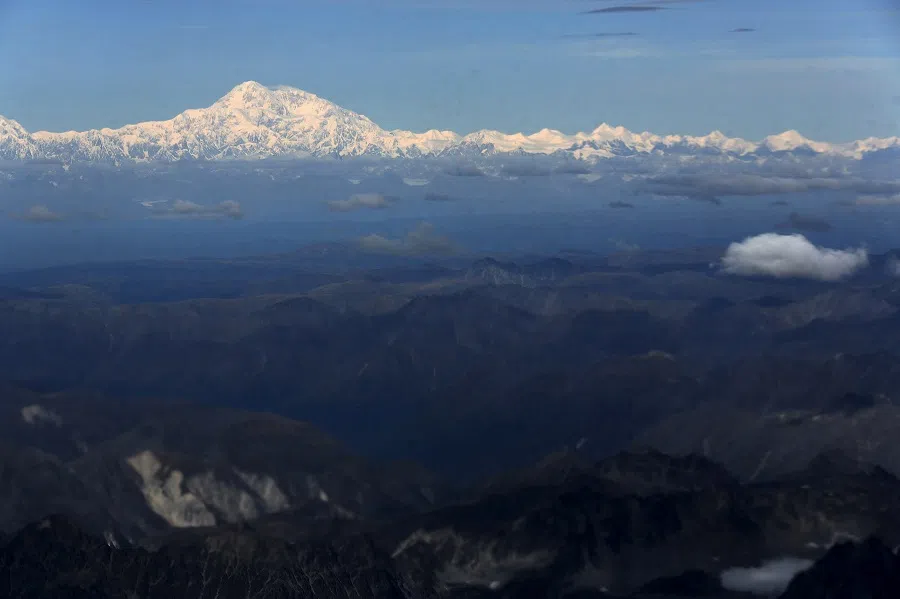
If successful in annexing Canada and Greenland, the US would have a land area of 21.68 million square kilometres, making it the largest country in the world by far — surpassing Russia’s 17.1 million square kilometres by about 4.58 million square kilometres. This would make China’s 9.6 million square kilometres seem unimpressive, at least psychologically ensuring that China could never surpass the US.
The control of Arctic strategic resources, geographical location and sea routes would fundamentally alter global geopolitics and geoeconomics, placing the US in an unbeatable position. Forget about Biden’s “rule-based international order”: the law of the jungle would again govern international relations.
This logic of conquest might be unsettling from a moral standpoint, but that discomfort arises from civilisation, not from human nature. Civilisation has not fully changed human nature — modern civilisation is less than 300 years old, and for most of that time, the world has been riddled with wars and conflicts. The truly peaceful era, following World War II, was achieved under American hegemony and the nuclear balance of terror between the US and the Soviet Union.
The origin of sins
The jungle world makes everyone feel insecure, creating a demand for stable order. As humanity has grown and developed, different mechanisms have been invented to bridge this inherent weakness of human nature, such as family, trade, religion, the state, empires, international law and organisations, treaties, and codes of conduct.
... humanity has gradually overcome differences, from local to the global, building ever larger communities on higher levels. But this has not changed human nature...
Empire has been the most commonly used form to establish and maintain order, while globalisation is the epitomy of these counter-natural forces of civilisation. In this way, humanity has gradually overcome differences, from local to the global, building ever larger communities on higher levels. But this has not changed human nature — it has only enlarged the units of conflicts. So far, these artificial constructs have not been able to fully subdue human nature.
After the Cold War, the great achievements of globalisation, increasingly refined laws, treaties, organisations and guidelines, along with the interdependence formed by global supply chains, crumbled within just a few years. Self interests and identity politics easily overturned the fragile ties and identities that were painstakingly built over time.
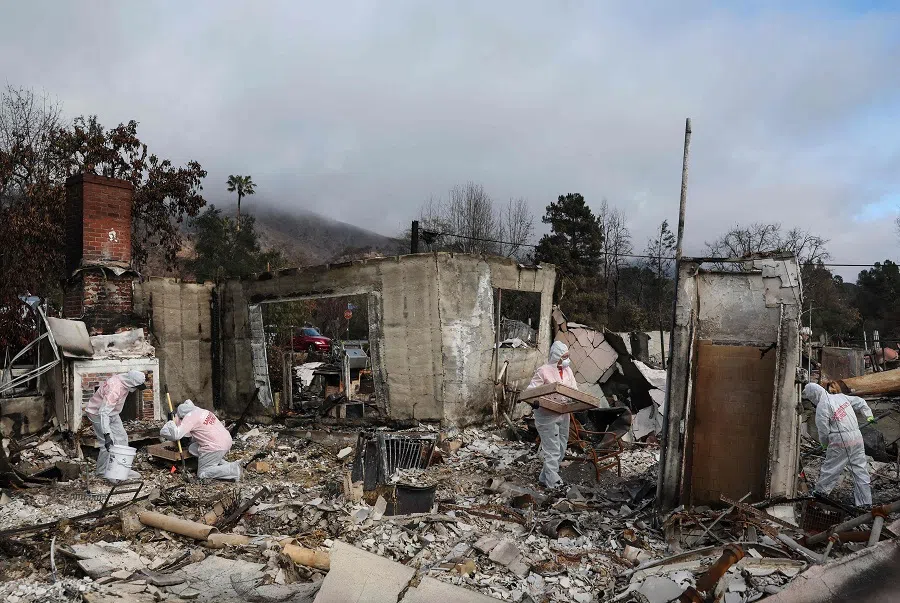
The reason for this is that law and order must be established and maintained by a strong power; once that power is no more, law cannot endure solely by self-discipline. Disasters or crises create a power vacuum — during the Covid-19 pandemic, the US witnessed widespread looting in the absence of authority; during the Los Angeles wildfires, people organised themselves to fill the void left by the lack of police power, preventing large-scale looting.
After World War II, the US military was unparalleled, and its economy accounted for more than half of the world’s GDP. This gave the US the confidence to establish a very different, much more tolerant and peaceful liberal international order. The erosion of this confidence is the fundamental reason for the shift in America’s role.
Rise of strongman politics
After the Soviet Union collapsed, Russia’s path to democracy was rocky, and democratic politics struggled to cope with the successive crises. Putin’s centralised, decisive leadership, on the other hand, resonated more with the majority of the population, and his approval ratings have remained high.
In the last one to two decades, a political trend in the world has been the retreat of democracy and the rise of strongman politics in various countries. This trend reflects not the superiority of democracy or authoritarianism, but the demand for leadership in this era of dramatic change, which neither democratic nor authoritarian systems of government have been able to supply.
Putin made blunders that have reversed the fortunes of his country, and Trump may go down the same road.
The intense internal divisions within democratic politics make decision-making lag behind real-world developments, even resulting in paralysis. Strongman politics often appear more efficient in the short term. The “Trump phenomenon” is a version of the “Putin phenomenon” in the US; and the “Putin phenomenon” also serves as a warning for the “Trump phenomenon” — Putin made blunders that have reversed the fortunes of his country, and Trump may go down the same road. This is the inevitable logic of the paramount leader’s arrogance and narcissism. Human nature is hard to change; once in power, one may feel that there is no need to change any more — they expect others to get out of the way.
No solution in sight
The US system is designed for balancing power, but Trump has demonstrated an extraordinary ability to break through traditional checks and balances. His strength lies in not being bogged down by ideology or political correctness. As America transitions into a “normal empire”, the challenge for the world — especially smaller nations — will be how to sustain the international order established by America which has benefited so many countries.
The best-case scenario would be the return of an idealistic government like Biden’s, willing to continue to shoulder international responsibilities, but American voters, under declining national power, no longer support this role.
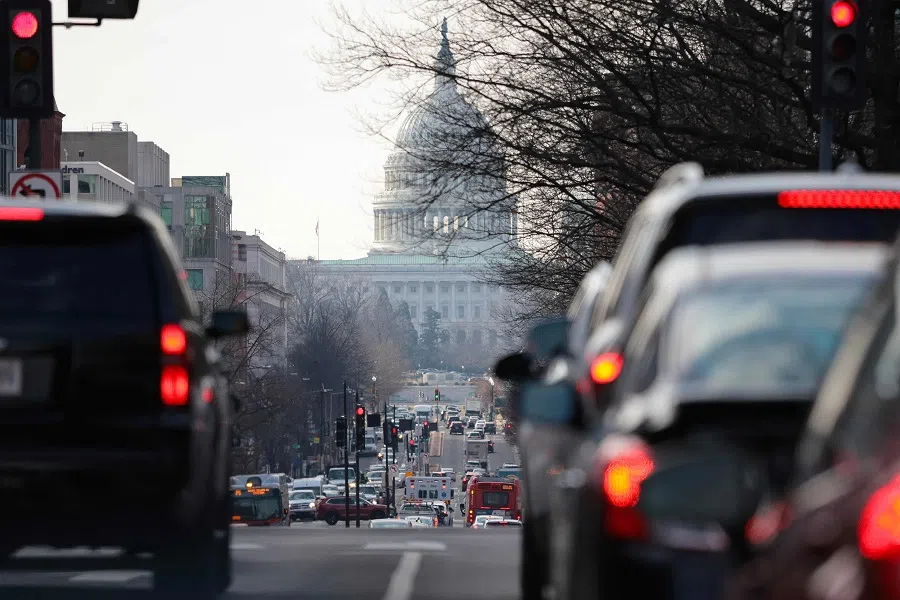
Another possibility is the G2 scenario — shared governance between China and the US, or a dual hegemony. But currently the two are at odds, with mutual distrust and a lack of cooperation. Another option is for another great power, like China, to step in and assume the responsibility of leadership, but China would face the distrust of Western nations; there is also the question of whether China is capable or willing to take on the burden.
A further alternative is to strengthen the United Nations’ coordination and peacekeeping mechanisms, but given the subversive actions by its founding member (the US), such efforts may not go well. Lastly, there could be a multipolar world order or “small multilateralism”, but these solutions are likely to be ineffective in the short term and unsustainable in the long run.
Any way one looks at it, China is unlikely to lose.
China’s choice
China’s rapid rise is the primary reason behind America’s shift in its international roles. In difficult times, Putin has continued to court China — could this lead to a “Putin effect” in China?
During the period of Trump’s inauguration, China moved to demonstrate its national strength. After showcasing a large batch of advanced weaponry at the Zhuhai Airshow in November, on 26 December 2024, China made a high-profile launch of two sixth-generation fighter jets on the anniversary of Mao Zedong’s birth. The head of the US Pacific Command commended China’s breakthroughs, expressing willingness to cooperate with China and not engaging in an arms race with China.
Subsequently, China also made advancements in hypersonic aircraft and released its homegrown large language model DeepSeek on the day of Trump’s inauguration, shaking up America’s AI community. The message to the US was clear: “Stuff your arrogance, we don’t buy it!”
Indeed, while US military spending is still 3.6 times that of China’s, it accounts for 3.2% of its GDP, whereas China’s military spending is only 1.7% of its GDP. In the words of American officials, “every dime” of US defence is “borrowed money”, with interest on national debt surpassing defence spending. The balance of power is rapidly shifting in China’s favour. Trump’s policies will likely disgruntle America’s traditional allies, further isolating the US. Any way one looks at it, China is unlikely to lose. So then, what should be China’s choice?
This article was first published in Lianhe Zaobao as “普京大帝的特朗普效应”.





![[Big read] When the Arctic opens, what happens to Singapore?](https://cassette.sphdigital.com.sg/image/thinkchina/da65edebca34645c711c55e83e9877109b3c53847ebb1305573974651df1d13a)